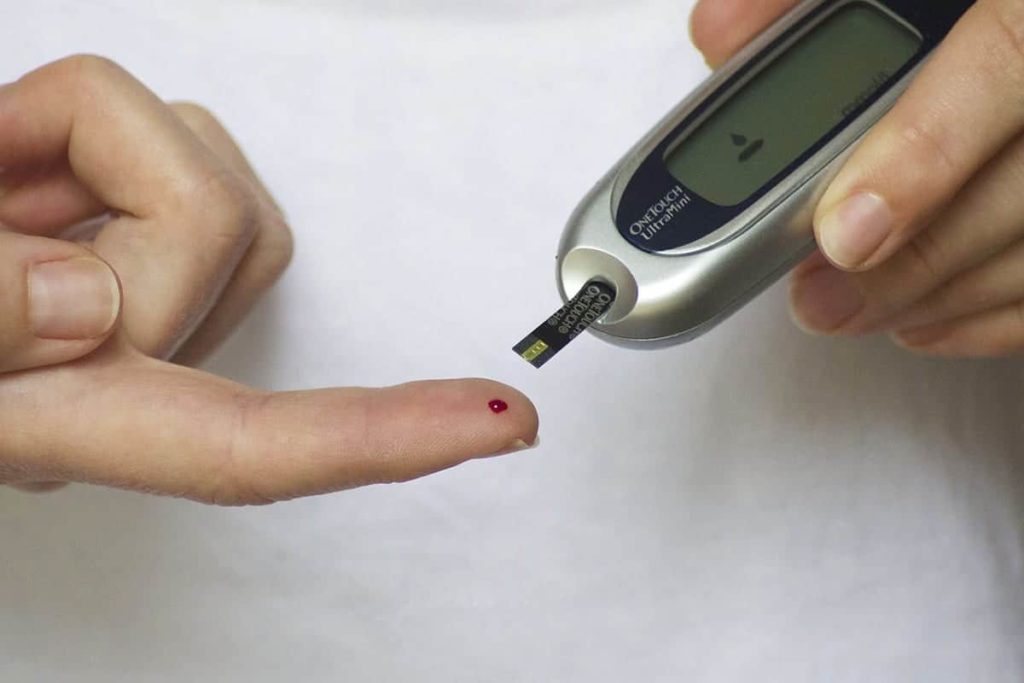Diabetes is without doubt people do not like to hear about. The reason for this is simply that it has a way of reducing the quality of life its victims can live. It is, however, a fact that early detection of this disease can go a long way towards ensuring that its effects are controlled. Knowing how long it takes to develop in the system may well be the secret key to living a strong life even with the disease.
How long does it take to develop diabetes?
How long does it take to develop diabetes? The answer to this question is dependent on a few factors. First, you must understand that most of the early signs arise from a higher level of glucose in your body.
The signs can be so insignificant that you may not notice them. This is more so with type 2 diabetes. Most people may not even observe they have it until they start observing the long term damages that are caused by the condition. In the case of type 1 diabetes, its symptoms usually occur rather quickly in a few days or even weeks.
What Are The Early Signs Of Diabetes?
The two types of diabetes usually come with the same type of warning indicators. These signs include the following:
1. Fatigue and hunger
Your body is equipped to convert the food you consume to glucose which your cells use in the form of energy. However, your cells require insulin to use glucose. If your body does not produce enough insulin or your body resists the ones that are made, the glucose won’t be able to get into them, meaning you won’t have energy. This should make you hungrier and more tired than normal.
2. Frequent thirst and urination
The average human being should be able to urinate between 4 to 5 times each day; however, victims of diabetes usually do so more often. The reason for this is not farfetched, normally; the body tends to reabsorb glucose as it passes through the kidney.
However, when diabetes increases your blood sugar levels, the kidney may find it difficult to get it all back in. this leads to a situation where the body creates more urine and that means fluid loss. Peeing so much would mean you have fewer fluids in your body thus making you thirstier.
3. Blurry vision
The varying fluid levels in the body may cause the lenses in your eyes to swell. They may also change shape and become more difficult to focus on.
4. Dry mouth and itchy skin
Because your body is making use of fluids for urination, you will be lacking in fluid for other purposes. You may become dehydrated while your mouth will feel dry. The dry skin could also make you feel quite itchy.
What Are The Symptoms Of Type 2 Diabetes?

Knowing the symptoms of any disease could go a long way towards preventing them or mitigating their effects. The symptoms of Type 2 Diabetes usually surface after your glucose has been high for a while. Here are a few of the symptoms:
1. Yeast infections
Men and women suffering from diabetes could suffer from this condition. The yeast usually feeds off the glucose; hence it should be able to thrive when there is plenty around. These infections can grow in a warm and moist fold of skin such as beneath the breasts, around the sex organs and between toes and fingers.
2. Slow-healing cuts or sores
An overtime high blood sugar level can have a telling effect on your blood flow and thus lead to nerve damage. This damage makes it quite difficult for your body to heal its wounds.
3. Numbness or pain in your legs or feet
This is also caused by nerve damage
4. Feeling Hungry
What Are The Symptoms Of Type 1 Diabetes?
Someone suffering from type 1 diabetes may observe the following symptoms:
1. Nausea and vomiting

The moment your body decides to burn fat, it produces ketones. These can help you in building your blood to a rather dangerous level. This could lead to a rather life-threatening situation known as diabetic ketoacidosis. Ketones tend to make you feel sick to your stomach.
2. Weight loss
If your body cannot get enough energy from the food it consumes, it will begin to burn fat and muscle for energy. You may also lose weight even if you haven’t changed your eating habits
What Are The Symptoms Of Gestational Diabetes?
There is usually no symptom of High blood sugar during pregnancy. However, one may feel a bit more thirsty than usual in addition to frequent urination. Melissa Thompson of Diabetes Life Solutions suggests “If thinking about getting pregnant, or recently discovered you are pregnant, meet with your Doctor. They can check your risk of gestational diabetes, and they’ll continue to monitor as part of your prenatal care.”
What Are The Warning Signs Of Diabetes Complications?
Some of the warning signs of diabetes complication includes; frequent yeast infections, decreased vision, itchy skin, erectile dysfunction, weight gain, etc.
What Should You Know About Diabetic Coma?
The official name is known as a hyperosmolar hyperglycemic nonketotic syndrome (HHNS). this situation can cause a diabetic coma and eventually death with both types of diabetes. It occurs when the blood sugar in your system becomes too high and your body soon becomes very dehydrated. Some of the symptoms of this condition include; dry, parched mouth, sleepiness, extreme thirst, hallucinations and weakness of the body.
When Should You Call Your Doctor?
If you are aged over 45 years or are exposed to the risks of diabetes, then you should get tested. If you can spot the condition early on, you can avert issues like heart trouble, nerve damage, and other complications. You should, however, call your doctor when you notice the following conditions; frequent urination, sickness of the stomach, deep breathing, and sweet breath.
You may like these articles as well:
Does Rubbing Alcohol Kill Lice?
Can Diabetics Drink Coke Zero?
Is Aids An Autoimmune Disease?
Conclusion
Having established the answer to the question “how long does it take to develop diabetes” you must recognize that early diagnosis is the key to safety. If you can identify and address the condition quite early, you will know to avoid certain things while also beginning a functional treatment regime.
There are millions of people out there suffering from diabetes and living a normal life, it simply all boils down to detecting it early and taking the right measures.






